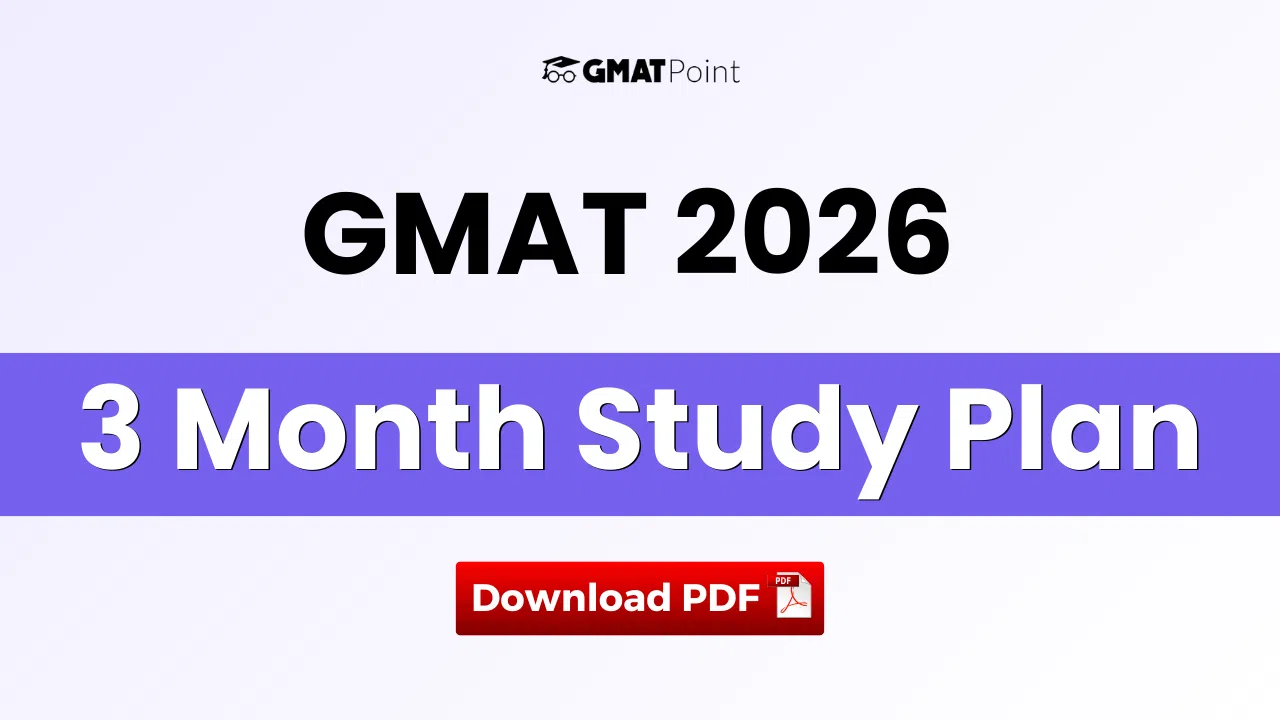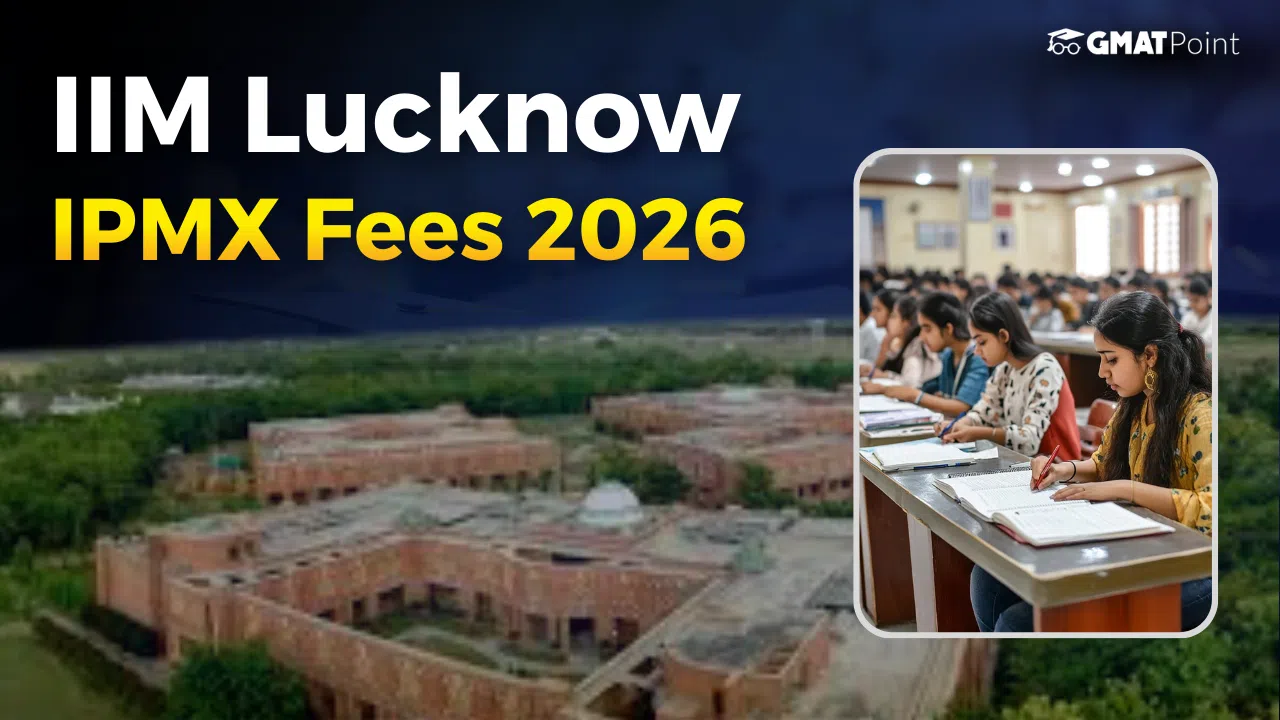GMAT Quant Syllabus 2026
The Graduate Management Admission Test (GMAT) is a standard exam for admission in India and around the globe. If you are thinking of preparing for GMAT 2026, then you have to check this blog out. This article's main focus will be on the GMAT Quant syllabus 2026. We will see what the topics are that you have to focus on, how to prepare, and what helps you increase your score. So, make sure you take note of them and start your preparation. Let’s not delay any longer to start your GAMT journey.
GMAT Exam Pattern 2026: Quantitative Aptitude
Quantitative Aptitude can be challenging for many students if they are not from a mathematical background. However, with consistent efforts, it's not difficult to gain a good score. So, before we jump into the preparation strategy, let's take a look at the GMAT QA exam pattern 2026.
Section | No. of Questions | Time Limit | Core Skills Assessed | Score |
Quantitative Reasoning | 21 | 45 minutes | Problem solving and Conceptual Understanding. | 60-90 |
Note: The GMAT exam contains a total of 64 questions with a time of 2 hours and 15 minutes.
Read More: GMAT Exam Pattern 2025, Section-wise Marking Scheme
GMAT 2026 Syllabus: Quantitative Aptitude
The GMAT QA 2026 syllabus doesn’t have any changes compared to last year. Quantitative Aptitude mainly tests the students' analytical and problem-solving skills. The questions will be like school maths, but understanding and getting the tricks to solve them is the key point. Let’s check what the QA topics are in GMAT 2026.
Arithmetic | Algebra |
Properties of Integers | Simplifying Algebraic Expressions |
Fractions | Equations |
Decimals | Solving Linear Equations with One Unknown |
Real Numbers | Solving Two Linear Equations with Two Unknowns |
Ratio and Proportions | Solving Equations by Factoring |
Percentages | Solving Quadratic Equations |
Powers and Roots of Numbers | Exponents |
Descriptive Statistics | Inequalities |
Counting Methods | Absolute Value |
Discrete Probability | Functions |
Sets | Permutations and combinations |
Profit and Loss, Discount | Progressions |
Speed, time, distance | - |
Important Topics for GMAT Quantitative Reasoning
The following are the key GMAT Quant topics that you must learn to strengthen your foundation.
Topic | Why It’s Important |
Number System & Integers | The basis for almost all arithmetic problems. |
Fractions, Decimals & Ratios | Frequent calculations in word problems. |
Percentages | Core for profit/loss, discounts, growth. |
Algebra (Equations & Inequalities) | Forms the backbone of many Quant questions. |
Powers & Roots | Essential for exponent & simplification problems. |
Data Interpretation & Statistics | Helps solve graphs, tables, and descriptive statistics. |
Probability & Sets | Common in moderate-to-high difficulty questions. |
Read More:GMAT Focus Edition 2026, Exam Pattern, Syllabus, Study Plan
How to Prepare for GMAT Quant 2026?
Whether it’s GMAT, CAT, XAT, or any exam, all you have to do is strengthen your basics, practice consistently, and take mock tests. So let’s see how to do that.
Build a Strong Foundation:
- If you are from a mathematics background and have a strong foundation in Arithmetic and Algebra. Then all you have to do is revise them and start taking GMAT mock tests to see where you stand.
- If you are not from a mathematics background and don’t have strong basics, worry not. You can start early preparation
- Learn the basics, make formula notes, and write down the tricks. Develop the mindset to practice daily. This helps you in the long run.
- Algebra and Arithmetic topics are numerical and can make you feel overwhelmed, but be strong and start your practice.
- A calculator is not allowed for this section, so mental math is also important. Improve your speed with daily practice of GMAT speed math.
GMAT Free Resources:
- There are GMAT videos and many free resources, too. Check them out and learn how to solve the questions.
- At least 6 to 8 months of practice is required if you are not good at the basics. Once you build the foundation, start the mock tests.
- In the first two months, take at least one GMAT quant Sectional test per week and later increase that gradually.
- In the last 2 to 3 months, take at least one test every two days. This helps you realise which topics you are strong in and which need improvement.
Analysis:
- After taking mock tests, sit for at least 30 minutes to 1 hour to analyse your mistakes.
- At first, it might not be easy, but this helps you gain confidence and improve your score in the upcoming tests.
- Check where you are making mistakes, it's maths generally we go wrong with calculations or some silly signs. So, enhance your accuracy while doing them.
Note: If you are planning to take the GMAT 2026, then start your preparation at least 6-8 months ahead.
Read More:GMAT 2025 Expected Questions PDF With Detailed Solutions
Preparation Tips for GMAT Quantitative Reasoning
Let’s check some GMAT Quant preparation tips that can help you increase your score in less time.
- Before you start preparation, take a simple test so that you can know where you stand. Don’t worry, even if you get low marks. It’s just an analysis test.
- Don’t pick any random topic from the syllabus and work on it without a plan. And practice that topic thoroughly until you can solve every question on it. Focusing only on one topic is not enough; consistency is key.
- Start with the number system and get habituated to at least 2 to 3 hours of practice daily.
- Analyse mocks and note the points where you feel weak, then work on them.
If you follow these tips, cracking the GMAT is not a big deal. This applies not just to Quant, but also to Verbal and Data Insights.
GMAT Quant Syllabus 2026: Conclusion
Preparing for the GMAT Quant syllabus 2026 requires a clear understanding of core mathematical concepts and consistent practice. Whether you are from a non-math background or already familiar with these topics, the key is to build a strong foundation in Arithmetic and Algebra. Focus on conceptual clarity, learn shortcuts, and revise regularly to increase speed and accuracy.




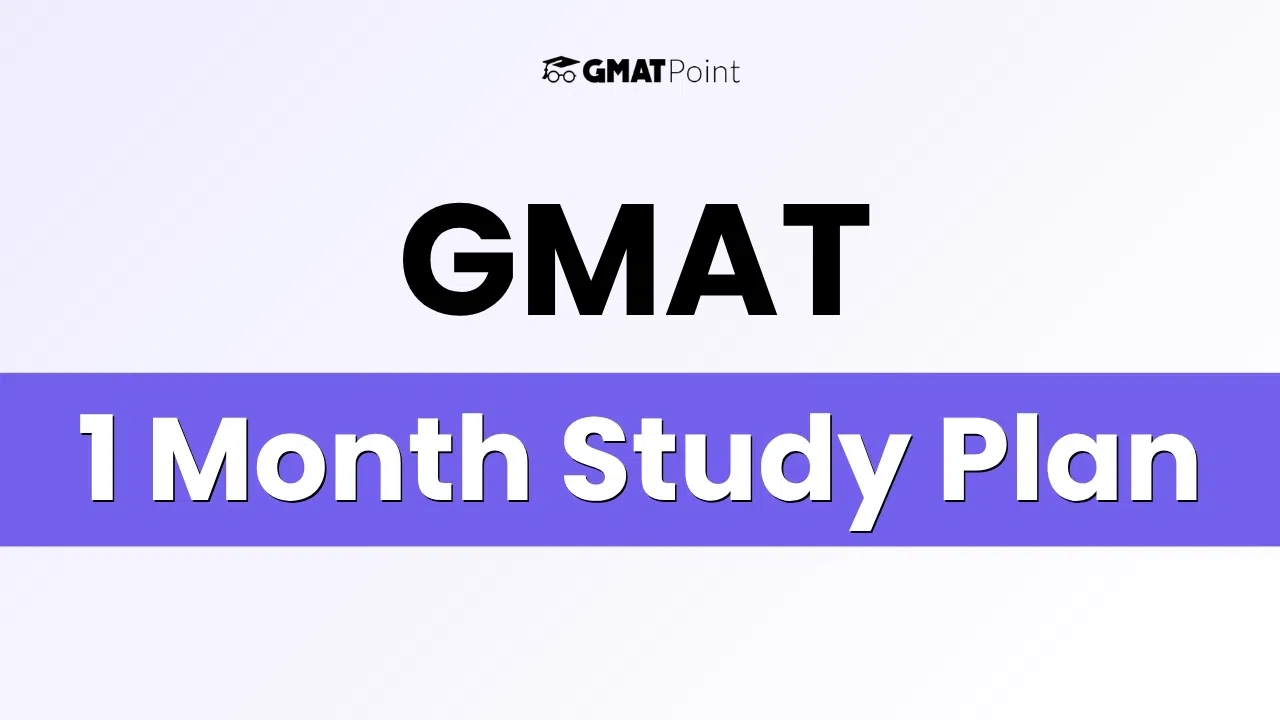
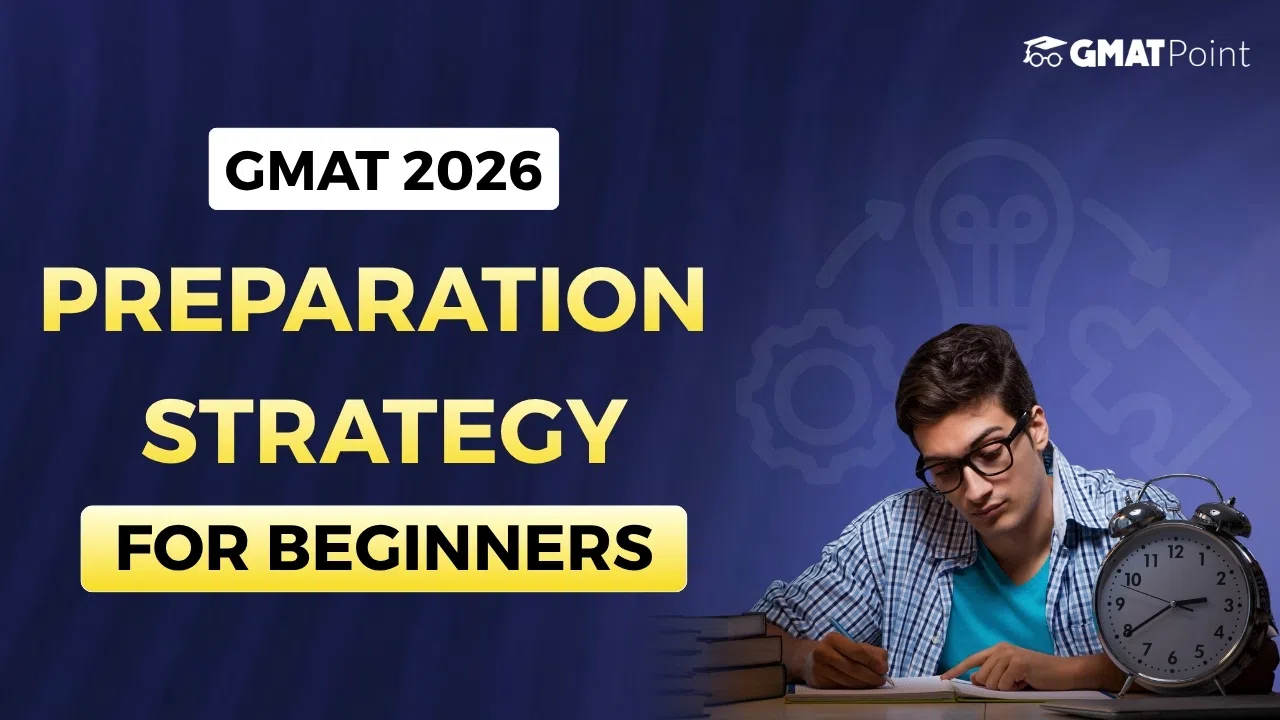
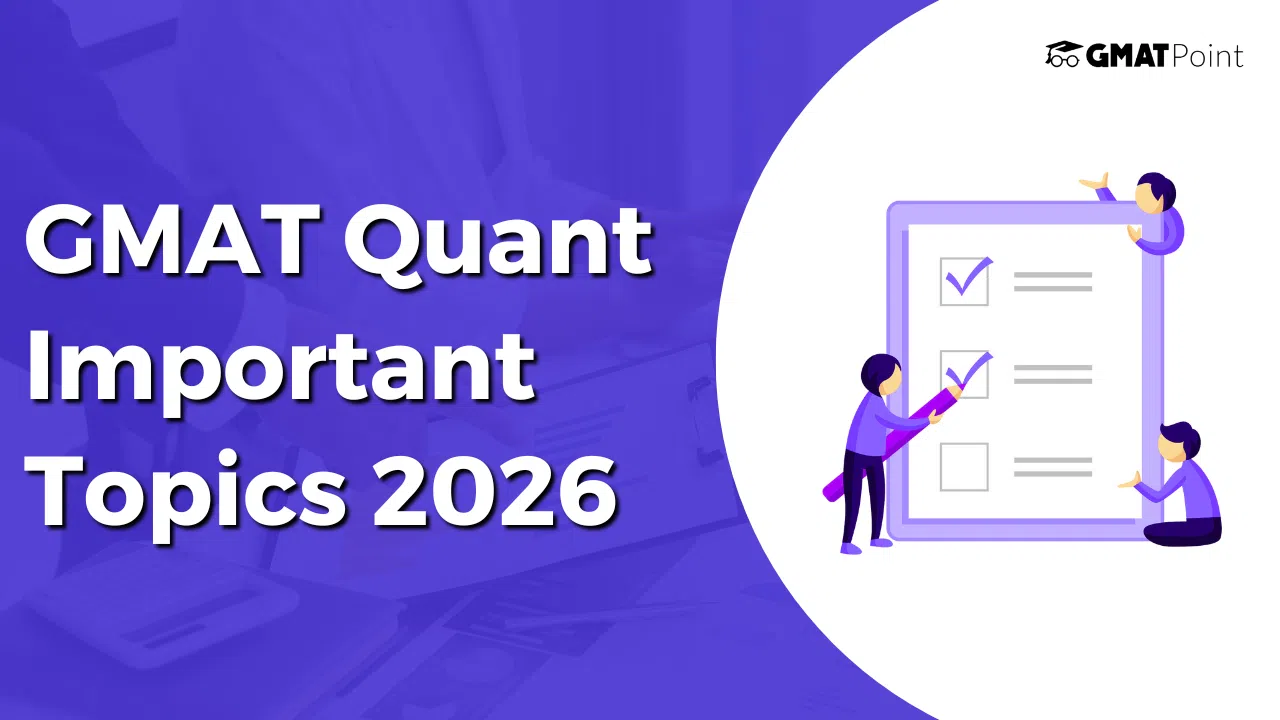

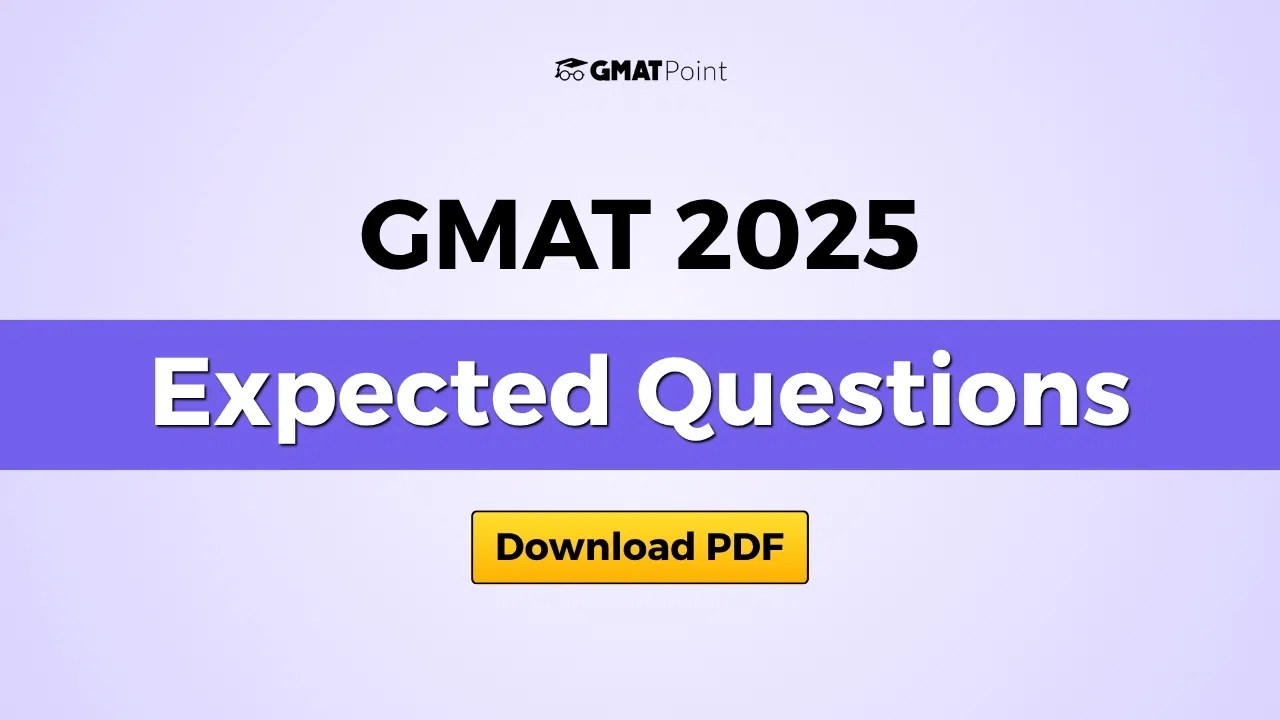

![GMAT Ratio & Proportion Formulas | Ratio & Proportion Cheat Sheet [PDF] GMAT Ratio & Proportion Formulas | Ratio & Proportion Cheat Sheet [PDF]](https://gmatpoint.com/media/73.webp)





